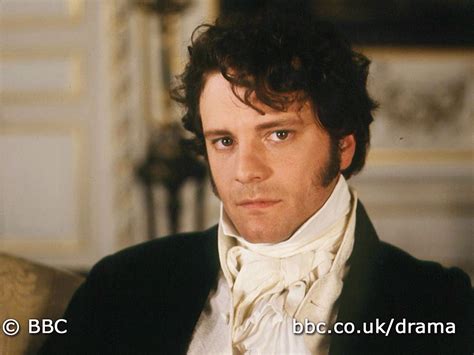Within the realm of English literature, few characters have garnered as much attention and scrutiny as Mr. Darcy from Jane Austen's seminal novel, Pride and Prejudice. Published in 1813, this novel has become a cornerstone of English literature, offering profound insights into the societal norms, class distinctions, and personal growth of the late 18th and early 19th centuries. At the heart of this narrative is the complex and intriguing character of Mr. Fitzwilliam Darcy, a wealthy gentleman whose pride and prejudices are gradually dismantled as the story unfolds.
Austen's masterful portrayal of Mr. Darcy is characterized by a multifaceted personality, replete with contradictions that make him both relatable and enigmatic. Initially introduced as a prideful and haughty figure, Darcy's demeanor is off-putting, particularly to the novel's protagonist, Elizabeth Bennet. His first impressions are marked by a sense of superiority, stemming from his high social standing and wealth, which leads him to belittle those he considers to be of lower status. This is evident in his dismissal of Elizabeth at the ball, where he famously declares her as "not handsome enough to tempt" him, a statement that not only reflects his pride but also sets the stage for their tumultuous relationship.
Key Points
- Mr. Darcy's initial portrayal as a prideful and haughty character serves as a facade for his deeper insecurities and vulnerabilities.
- The evolution of his relationship with Elizabeth Bennet is pivotal in his character development, as it challenges his prejudices and fosters personal growth.
- Darcy's actions, particularly his involvement in separating Bingley from Jane and his treatment of George Wickham, are motivated by a complex mix of loyalty, protectiveness, and social responsibility.
- Through Darcy's character, Austen critiques the social class system of her time, highlighting the tensions between personal merit and social standing.
- The novel's exploration of Darcy's inner world, as revealed through his letters and interactions with Elizabeth, humanizes him and underscores the importance of self-reflection and change.
The Evolution of Mr. Darcy

One of the most compelling aspects of Mr. Darcy’s character is his evolution throughout the novel. As the story progresses, Austen skillfully peels away the layers of Darcy’s pride, revealing a more nuanced and vulnerable individual. This transformation is largely facilitated by his interactions with Elizabeth, whose wit, intelligence, and strong will challenge his assumptions and force him to reevaluate his behavior. The pivotal moment in this transformation comes with Darcy’s letter to Elizabeth, in which he explains his actions and expresses his feelings for her, marking a significant turning point in their relationship and in Darcy’s personal growth.
Personal Growth and Self-Reflection
Darcy’s journey towards self-awareness and personal growth is a central theme of the novel. Through his experiences, particularly his rejection by Elizabeth and his subsequent realization of his mistakes, Darcy comes to understand the error of his ways and the harm caused by his pride. This process of self-reflection leads to a profound change in his character, as he learns to balance his sense of self-worth with a more humble and empathetic approach to others. Austen’s portrayal of Darcy’s growth serves as a powerful commentary on the importance of personal development and the capacity for change, suggesting that individuals can overcome their flaws and become better versions of themselves through effort and self-awareness.
| Character Traits | Evolution |
|---|---|
| Pride | Initially dominant, gradually gives way to humility and self-awareness |
| Prejudice | Challenged and eventually overcome through his relationship with Elizabeth |
| Emotional Expression | Develops from reserved and aloof to more open and expressive |
| Empathy | Increases as he comes to understand and appreciate the perspectives of others, particularly Elizabeth |

Social Commentary and Critique

Austen’s portrayal of Mr. Darcy also serves as a vehicle for social commentary, particularly regarding the class system of her era. Through Darcy’s character, Austen critiques the social conventions that prioritize wealth and status over personal merit and relationships. Darcy’s initial disdain for those of lower social standing, including the Bennet family, highlights the class divisions of the time. However, his eventual realization of the error of his prejudices and his love for Elizabeth, despite her inferior social position, underscore the novel’s argument for the importance of personal qualities over social status.
Relationships and Loyalty
Darcy’s relationships with other characters in the novel, especially his friend Bingley and his sister Georgiana, demonstrate his loyalty and protective nature. His actions, though sometimes misguided, are motivated by a desire to protect those he cares about, even if it means going against his own interests. This aspect of his character humanizes him and provides depth to his interactions with Elizabeth, as he gradually learns to balance his loyalty to his family and friends with his growing feelings for her.
In conclusion, the character of Mr. Darcy in Pride and Prejudice is a masterpiece of literary creation, offering a complex and nuanced exploration of personal growth, social class, and the human experience. Through his transformation from a prideful and haughty gentleman to a more humble and empathetic individual, Austen provides a powerful commentary on the capacity for change and the importance of self-reflection. As such, Mr. Darcy remains one of the most compelling and enduring characters in English literature, continuing to captivate readers with his story and the profound insights it offers into the human condition.
What is the primary catalyst for Mr. Darcy’s personal growth in Pride and Prejudice?
+The primary catalyst for Mr. Darcy’s personal growth is his relationship with Elizabeth Bennet, whose rejection of him and subsequent explanations of his behavior force him to reevaluate his actions and attitudes.
How does Austen use Mr. Darcy’s character to critique the social class system of her time?
+Austen critiques the social class system through Mr. Darcy’s initial prejudices against those of lower social standing, particularly the Bennet family, and his eventual realization that personal merit and character are more important than social status.
What role does loyalty play in Mr. Darcy’s character development?
+Loyalty is a significant aspect of Mr. Darcy’s character, as seen in his actions towards his friend Bingley and his sister Georgiana. His protective nature and desire to do what is best for those he cares about motivate many of his decisions, even if they sometimes lead to misunderstandings.



